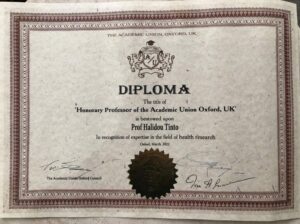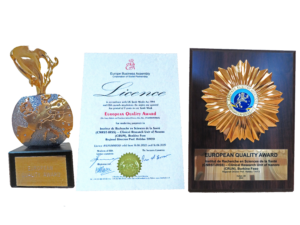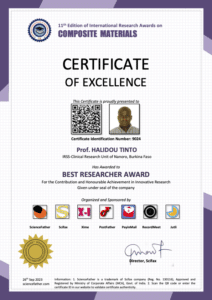Leadership
The secret to the success of our laboratory is to adhere to high standards throughout and focus on the customer.
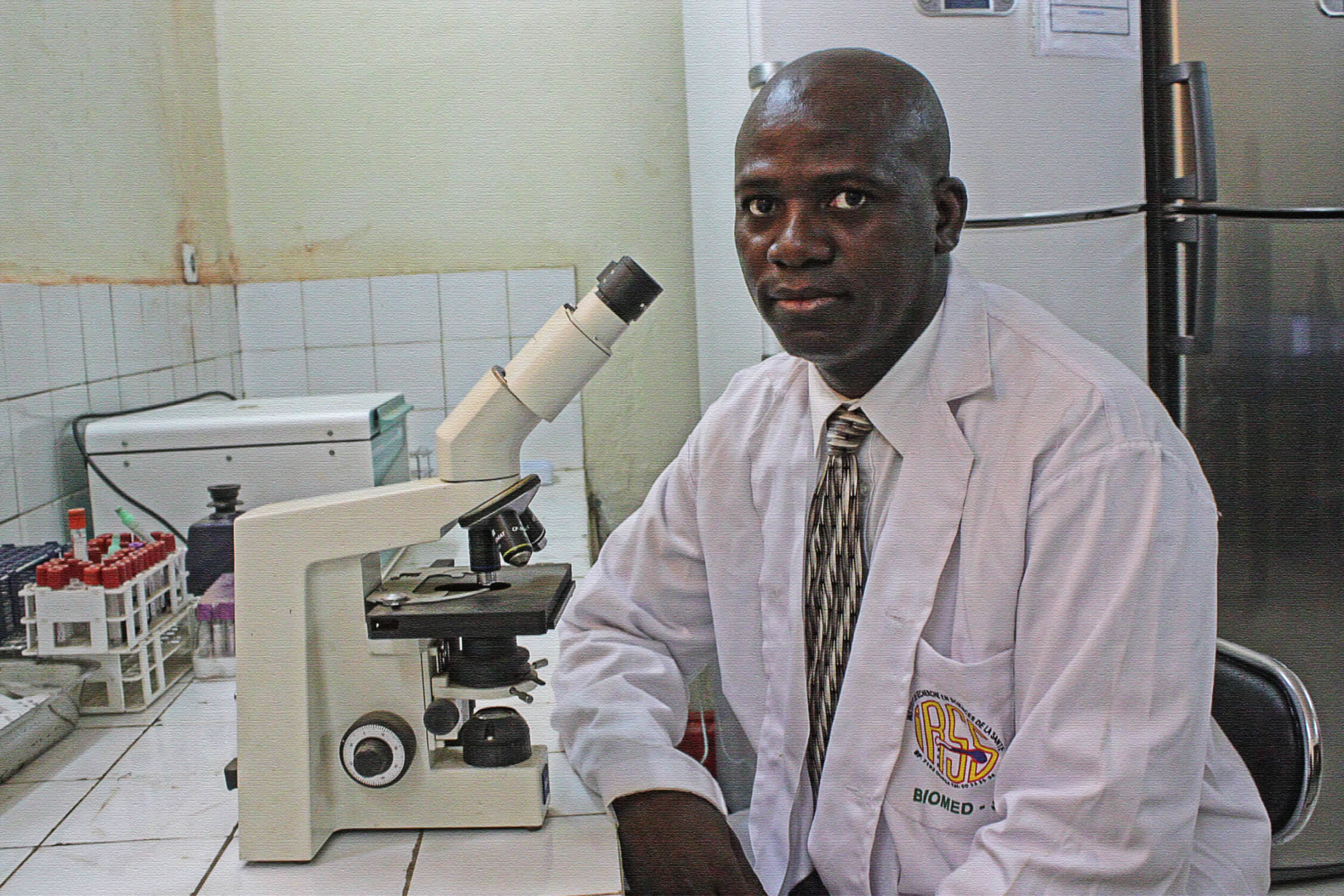
Prof Halidou TINTO
His research activity focused on malaria parasite biology is currently oriented towards the epidemiology of the parasite resistance. He has been involved in many projects for the 20 past years in this topic. He mainly worked in the field of malaria treatment in children and more recently in the prevention/treatment of malaria in pregnant women.
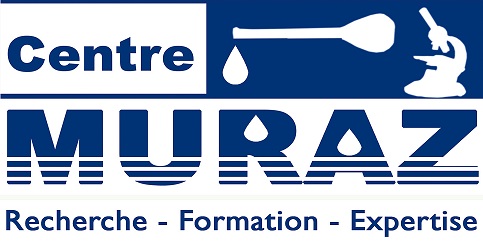
Pharm D by background, he worked as research associate in charge of the surveillance of drug resistance at Centre Muraz, Burkina Faso.
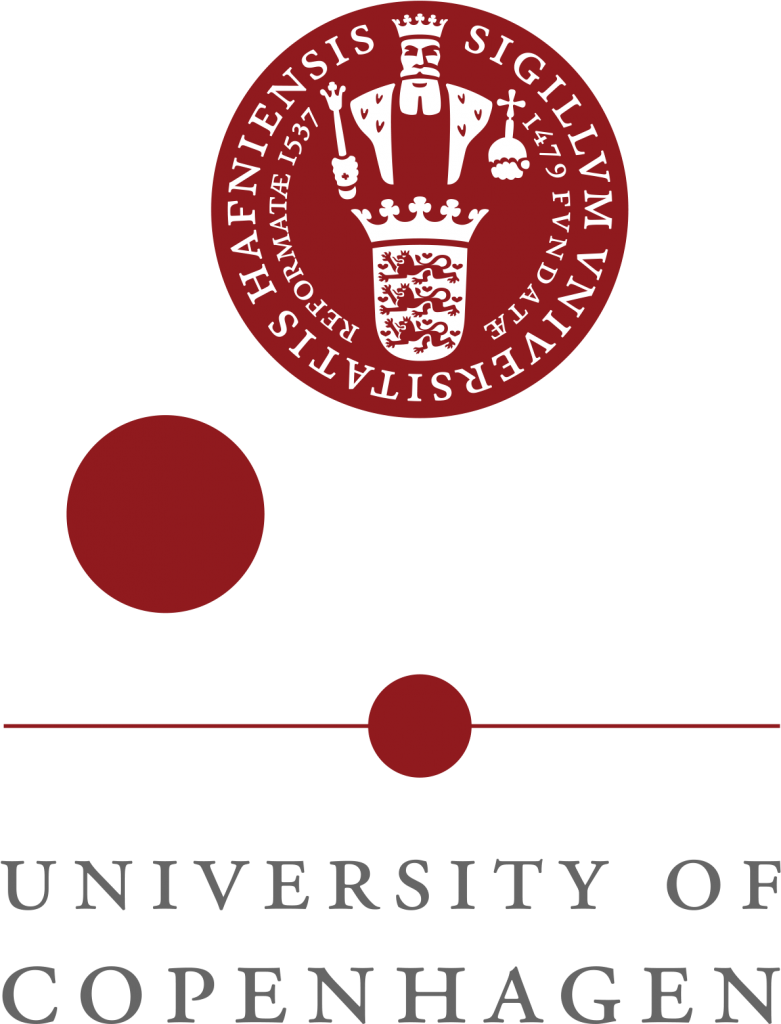
He worked in the Royal Danish School of Pharmacy, Denmark as Research fellow in Development of alternative medicine against malaria.
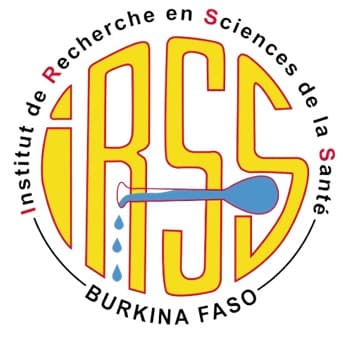
He has been recruited as research associate at the Institute for Health Research (IRSS) and seconded in Centre Muraz.

He worked as PhD fellow in Medical Sciences at ITM, Belgium, where he worked on the epidemiology of malaria drug resistance in Burkina Faso and the mechanism of the resistance in Rwanda.

After obtaining his PhD in 2006, he went back in Burkina Faso, where he contributed to create the Clinical Research Unit of Nanoro (CRUN) in 2009. Since the year 2006, he successfully conducted (as principal investigator or co-investigator) several phase I/II, III and IV clinical trials. Under his leadership as the head of the unit, the CRUN has successfully conducted more than 30 trials including the GSK RTS,S phase 3 malaria vaccine trial.
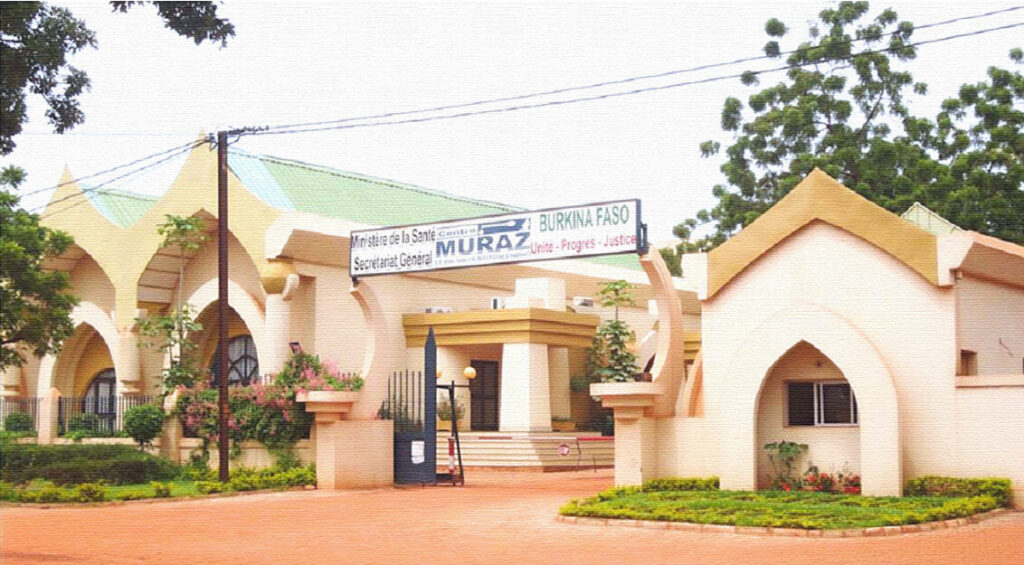
He was appointed as the scientific director of Centre Muraz
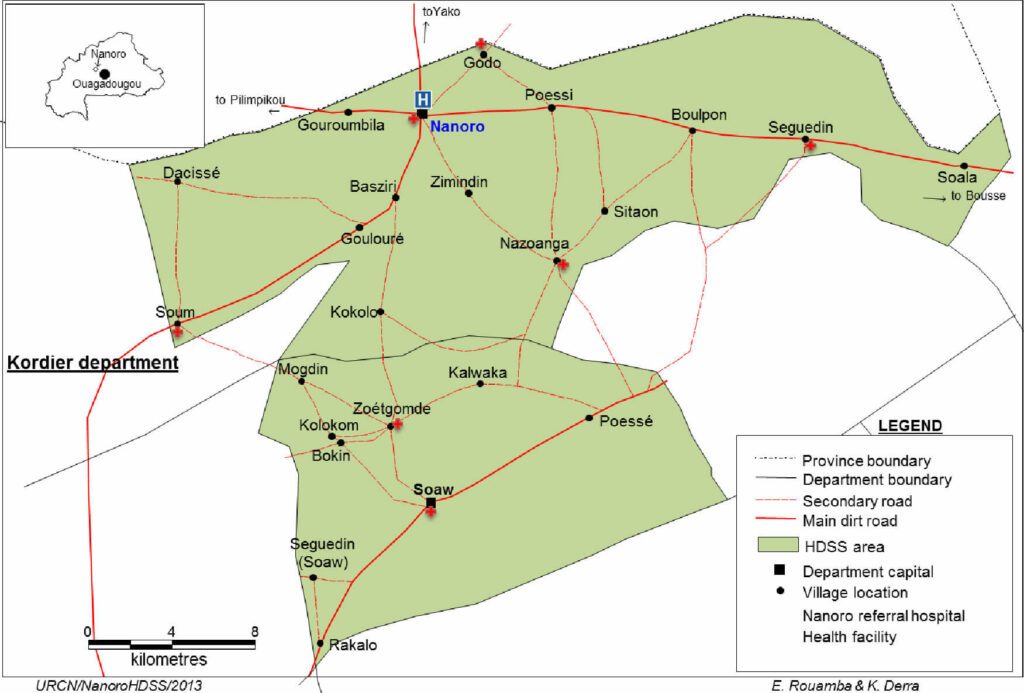
From 2016 he has been graduated as Professor in Parasitology associated attached at the University Nazi Boni of Bobo-Dioulasso where he teach the modules of ‘’Clinical trials’’ and the ‘’Control of parasitic diseases’’. He was also appointed as the regional director of the Institute for Health Sciences Research for the center-west region in Nanoro.
Awards
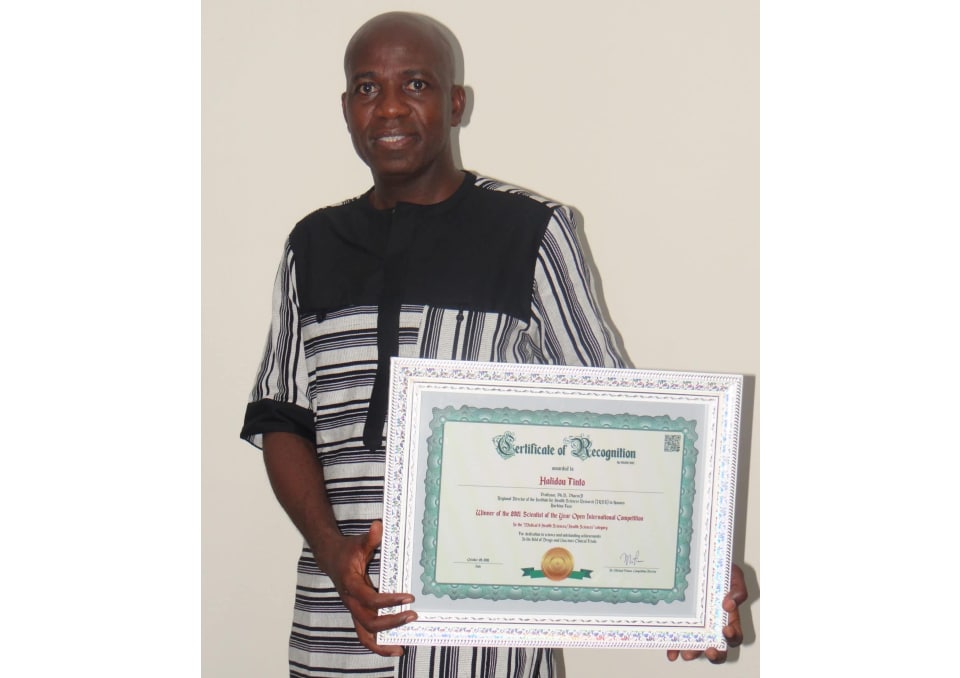
Prof Halidou TINTOwas awarded the "Best Scientist of the Year 2021 Award" by the International Achievements Research Center based in Canada

Prof Halidou TINTO has been given the title "𝗧𝗵𝗲 𝗡𝗮𝗺𝗲 𝗶𝗻 𝗦𝗰𝗶𝗲𝗻𝗰𝗲" in the field of scientific researches by the Academic Union based Oxford in the UK – 2021.
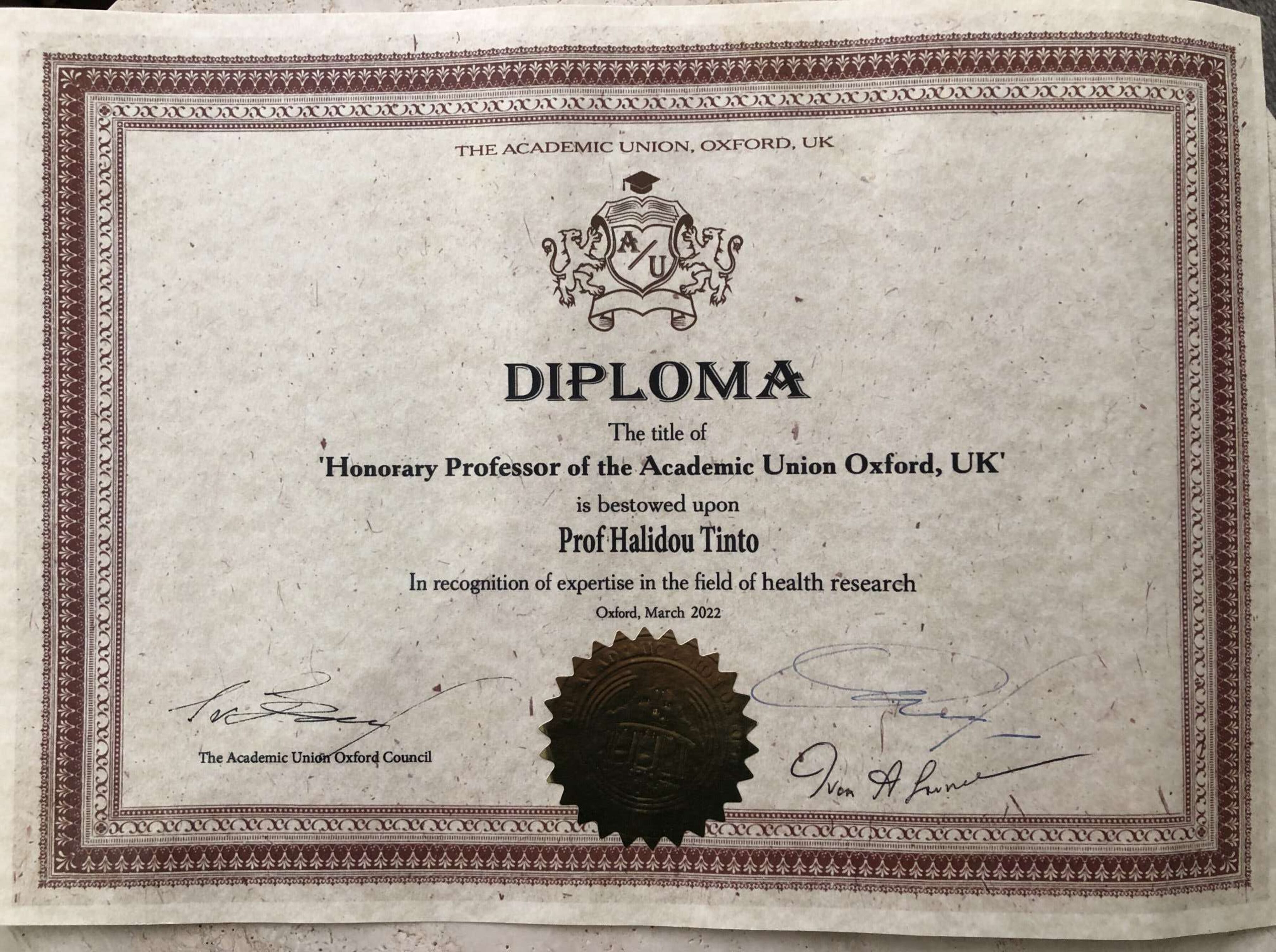
Honorary professor of the Academic Union Oxford, UK

European Quality Award

BEST RESEARCHER AWARD For the Contribution and Honourable Achievement in Innovative Research


